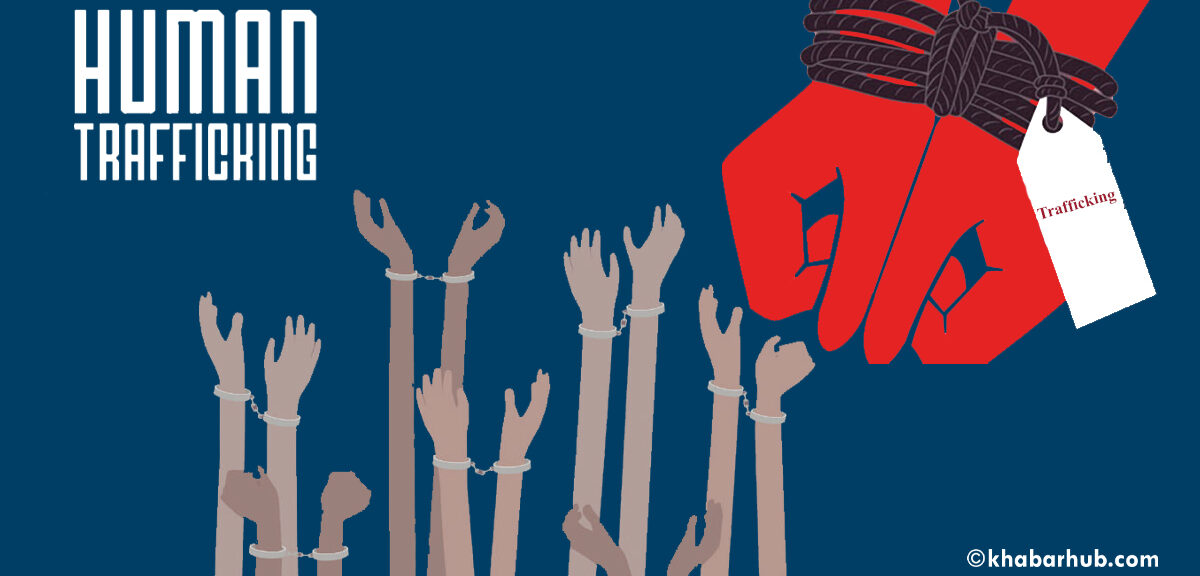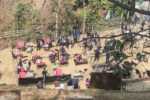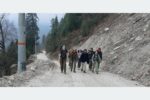KATHMANDU: With the conclusion of the festival season, the risk of human trafficking is expected to rise, and authorities are urging the public to stay alert.
The Human Trafficking Bureau has warned people to be cautious, particularly when seeking employment, as traffickers often target individuals at this time.
Gautam Mishra, spokesperson for the Bureau, emphasized that the end of the festival marks a time when many people return to their workplaces or move to cities in search of new job opportunities. This increase in movement, he noted, heightens the risk of trafficking.
“After the festival, many people venture out looking for better opportunities,” Mishra said.
“The economic pressures from the holiday season can lead some to make hasty decisions, putting them at risk. Human trafficking is especially prevalent during this period. Many individuals—particularly those traveling to other regions within Nepal or through India—are trafficked.”
Mishra highlighted specific areas where people are particularly vulnerable, such as the Karnali and South-Western regions.
During major festivals like Dashain and Tihar, many people seek employment opportunities both within Nepal and abroad, which unfortunately makes them vulnerable to trafficking.
“Women are often targeted, although men are also at risk. Many are lured into dangerous labor conditions, such as working in coal mines, where they are trapped,” he explained.
The spokesperson also pointed out that the cultural traditions of festivals, such as feasting on meat, buying new clothes, and giving gifts, often push people into debt.
“For some, the pressure of keeping up with these traditions can lead them to take desperate measures, including accepting exploitative work. These individuals often become victims of trafficking and are forced to work in inhumane conditions,” Mishra said.
The risks are even greater for those who migrate abroad in search of employment, particularly to the Gulf countries.
“By the time they realize they have been sold into forced labor, it is often too late to help them,” Mishra said.
“It is difficult to rescue those trafficked for domestic work, and investigating these cases in foreign countries is an enormous challenge. Nepalese citizens are trafficked to various countries, and locating and assisting them is a complex process.”
Mishra also noted the limitations of the Human Trafficking Bureau’s resources, which make rescues even more difficult.
“Despite the hard work of the Bureau, which has made significant strides with limited manpower, the scale of the task is daunting. The government must do more to protect citizens from trafficking,” he said.
He pointed out that trafficking methods have evolved over time. “It was once primarily confined to internal trafficking and movement across the India-Nepal border. Now, Nepalis who travel abroad for work are often sold into forced labor without their knowledge.”
Mishra stressed that human trafficking is not an issue that can be solved by any single agency.
“It requires a coordinated effort from all sectors. We need to create a comprehensive system to prevent trafficking—both by improving domestic employment opportunities and by preventing vulnerable individuals from being trafficked abroad,” he said.
“If we can create better conditions at home, fewer Nepalis will have to leave for domestic work abroad, and the incidence of human trafficking will decrease.”
According to police statistics, the highest rates of human trafficking are observed in the Kathmandu Valley, where many people flock in search of employment.
The Lumbini Province, which borders India, is also a hotspot due to the cross-border migration for work.
DIG Dan Bahadur Karki, Police Spokesperson at the Police Headquarters, confirmed that investigations are ongoing in areas with high trafficking risks.
“The Foreign Employment Department is actively regulating the situation, and the police are working in close coordination with them. Special attention is being given to border crossings and airports. The Immigration Department is also closely monitoring the situation,” Karki said. “We remain vigilant at all points of entry.”
“If you find yourself in a troubling or exploitative situation, don’t hesitate to file a complaint. Human trafficking is an illegal act, and we are here to help,” he said.
During major festivals like Dashain and Tihar, many people seek employment opportunities both within Nepal and abroad, which unfortunately makes them vulnerable to trafficking.
The police, Karki added, are actively collaborating with relevant agencies to prevent trafficking and raise awareness about the risks.
“Through various awareness programs, we aim to educate the public about the dangers of human trafficking, especially during this vulnerable period.”
According to the police, the first step in avoiding human trafficking is for individuals to be aware of the risks and recognize what trafficking is—and just as importantly, what it is not.
Police spokesperson DIG Karki emphasized, “Some victims don’t realize they have been trafficked until they are rescued by the police. Therefore, understanding what human trafficking is and how to recognize it is crucial.”
Karki also urged people to report any suspicious employment situations to the police.
“If you find yourself in a troubling or exploitative situation, don’t hesitate to file a complaint. Human trafficking is an illegal act, and we are here to help,” he said.
Under the Human Trafficking Control Act 2064, trafficking is punishable by up to 20 years in prison and a fine of up to two lakh rupees.
In cases of transportation for trafficking purposes, the penalty can include up to one year of imprisonment.








Comment